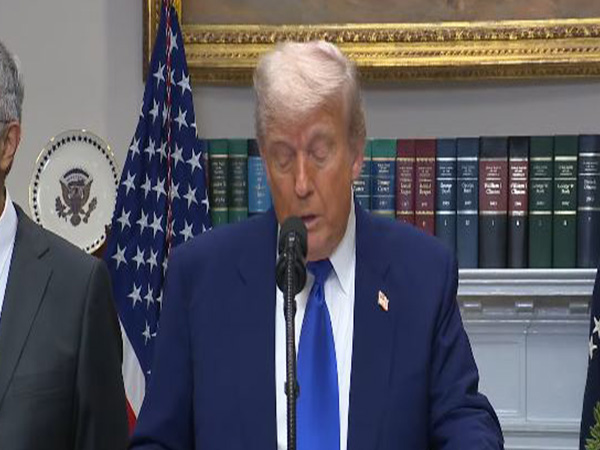
India-Bangladesh relations should be based on mutually respectful, beneficial, and non-interference: Senior BNP leader
May 12, 2025
Dhaka [Bangladesh], May 12 : India-Bangladesh relations should be based on mutually respectful, beneficial, and non-interference in each other's internal affairs, a senior Bangladesh Nationalist Party (BNP) leader said on Monday.
"India is our neighbor. Obviously, we all expect the bilateral relation should be a neighborly one relationship. Mutually respectful, mutually beneficial, one of non-interference - these are the basis for any relation. We want the relationship to last and flourish. This is how we look at the India-Bangladesh relationship. Both sides should pursue, try, and work towards that. So that this relationship sustains through the basis that I just mentioned", Amir Khosru M Chowdhury, a member of the Standing Committee of BNP, told ANI in an interview.
"There have been concerns from both sides. We have to bring it to the table - some will be short-term, some will the mid-term term and some will be long-term. But the foundation of any relationship should be based on what I have just mentioned", he added.
The Standing Committee is the highest policy-making body of BNP. Chowdhury, also the former Minister of Commerce, assured that if BNP goes to power, they will address India's security concerns.
"I don't think there is any reason for concern. Bangladesh's priority is prosperous, developed country. BNP has made it absolutely clear that this land will never be used springboard for any insurgents or terrorists. Of course, it is expected that both sides mutually respect such a situation. Everything is mutual. No sides should be used as a springboard for terrorists and activists who harm the neighborly relationship", he said.
The BNP leader also spoke about India's concern about the minority situation in Bangladesh.
"Why should it be an Indian concern, I don't understand. It is a concern of the Bangladesh government and the people of Bangladesh. I think Bangladeshis are quite aware of it. Bangladesh is one of the best harmonious. We have a wonderful coexistence across minorities, linguistic differences, and cultural differences, and that comes under the umbrella of Bangladeshi nationalism. Whoever lives in the territory of Bangladesh is an equal citizen. We never discriminate - religion, culture, or linguistic differences between each other. It is the concern of Bangladesh. Why should India be concerned of it. We are not going to be concerned, what happens with Indian minorities because it is the job of the Indian government and Indian politicians to take care of the minorities", he said.
Replying to a question about anti-Indian rhetoric in Bangladesh, Chowdhury said, "In politics, rhetoric is not uncommon. Rhetorics are on both sides. Politician tend to go for rhetoric to ... their own constituency. It happens on both sides. Rhetorics are rhetorics. Policy is more important. But the rhetoric is not good for either side. We should respect each other's relationships. Non-interference is the key issue", he said.
The BNP leader stressed to improve overall bilateral relations for good trade relations between India and Bangladesh.
"If you have a really good bilateral relationship, that encourages all sorts of relationships to be improved and go forward. Our bilateral relationship also should be improved", he said.
Bangladesh's interim government has banned the activities of Sheikh Hasina's Awami League party. BNP leader said that the ban on the Awami League was a legal matter.
"It is going through a legal process. It is a pending matter. It is a sub-judice matter. The legal process has not yet started. Let the legal process go through the judicial process. Whatever the outcome, we have to go by. We believe in an independent judiciary. So leave it to the judiciary", Chowdhury said.
Bangladesh Prime Minister Sheikh Hasina was ousted from power in a student-led uprising on August 5 last year. Hasina fled to India. An interim government led by Nobel Laureate Muhammad Yunus was formed.
Chowdhury further said, "Stability in South Asia is very important. Stability should get top priority in South Asia to prosper, lift the people of the countries out of poverty. To bring change in their life. War is the last thing any of the South Asians want. Any escalation affects the whole region. It is not good for any country."





















